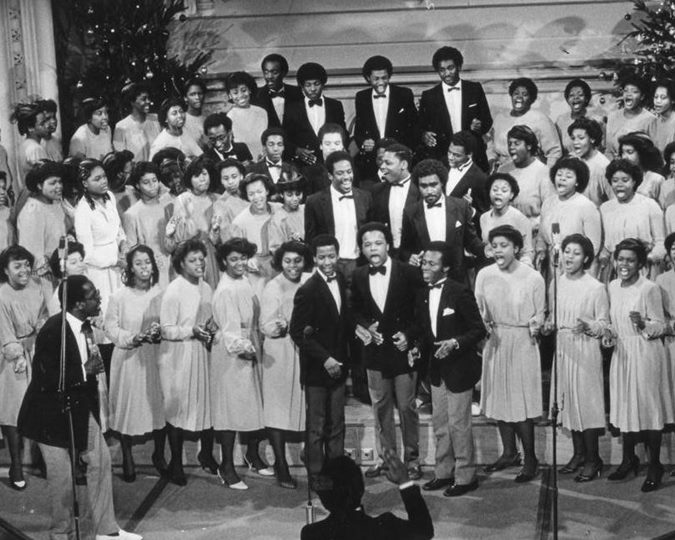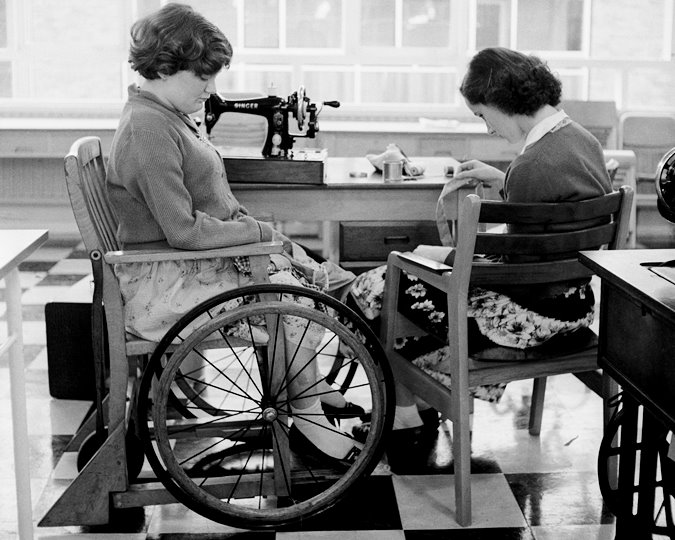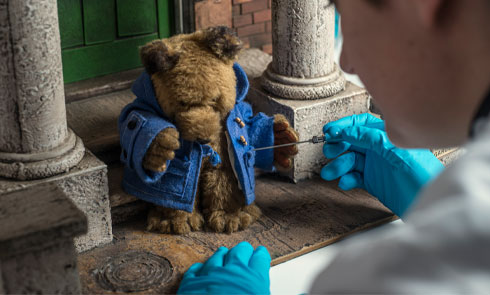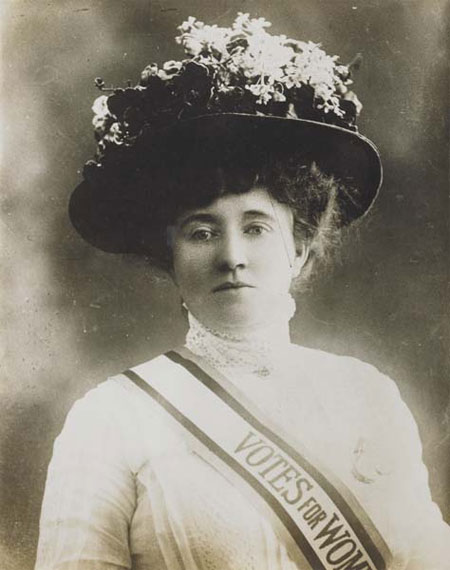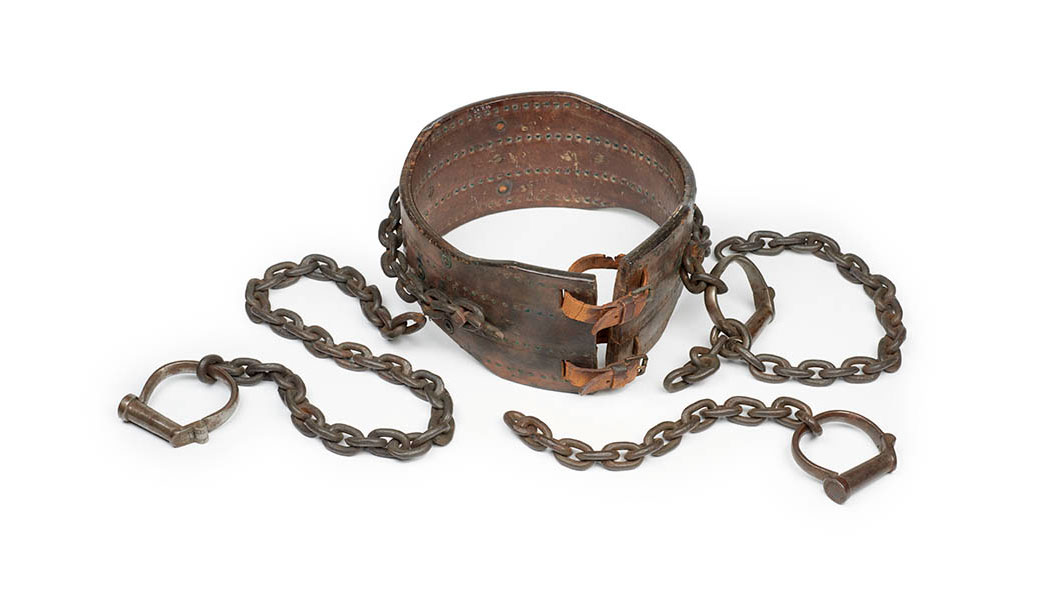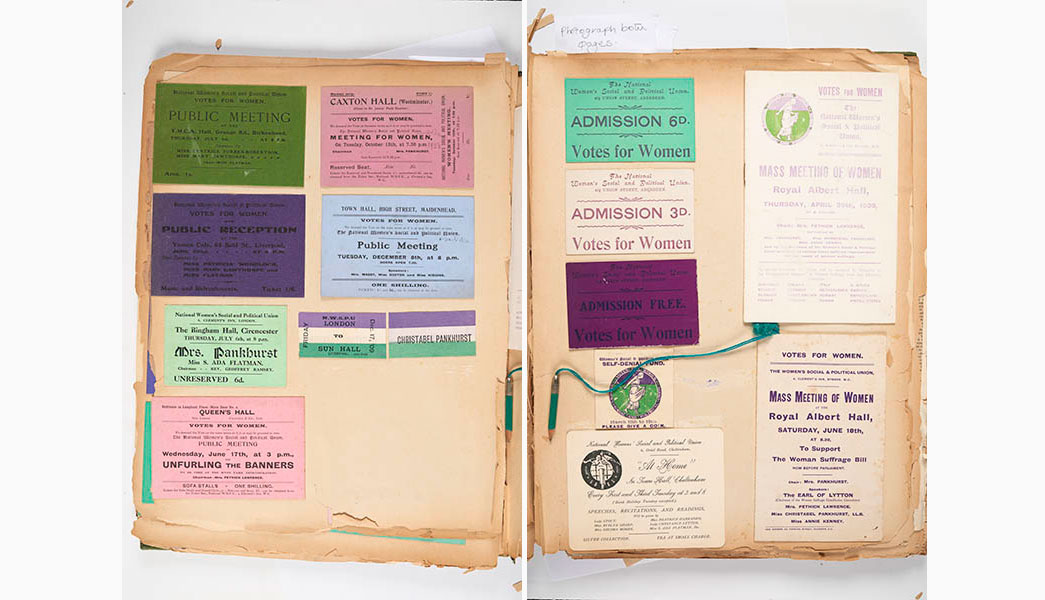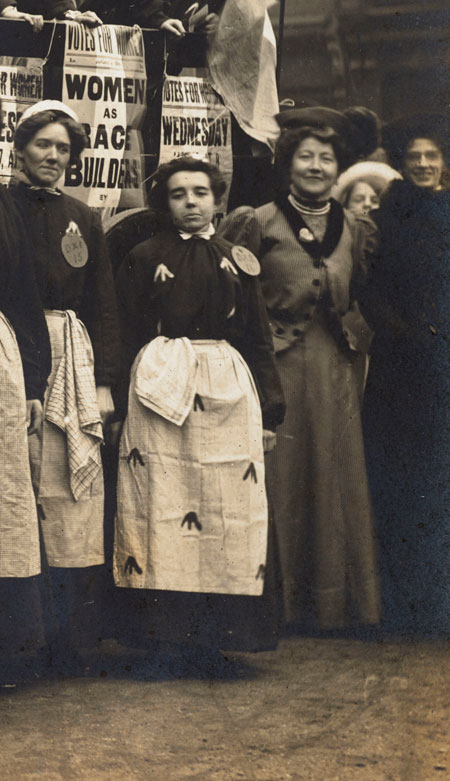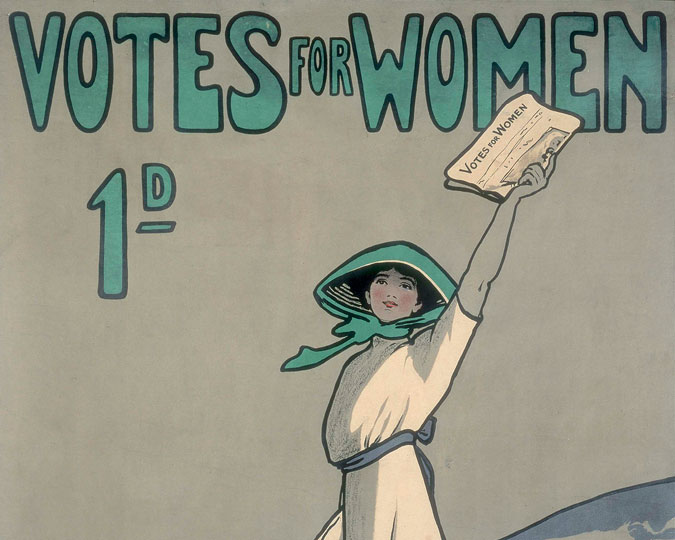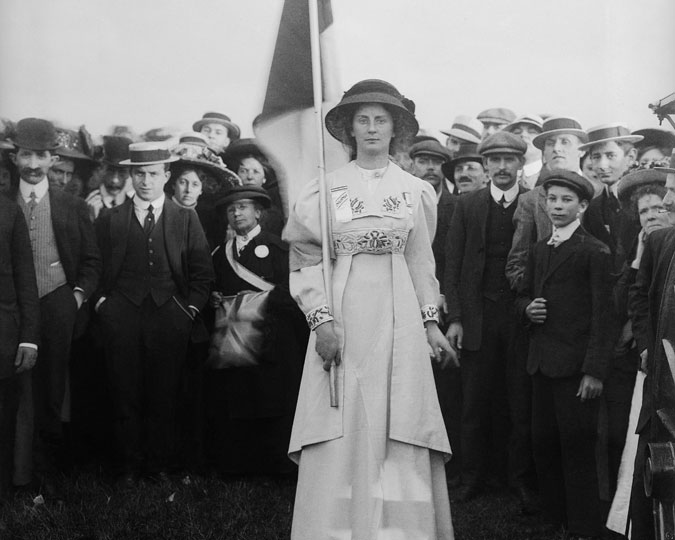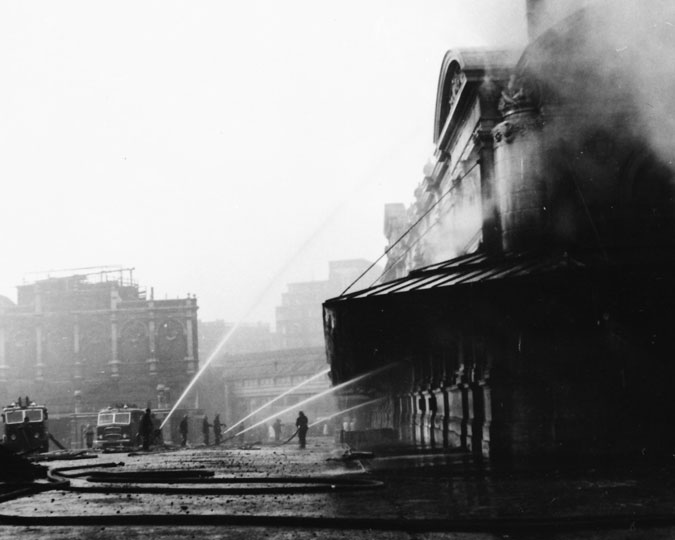Our 2018 display, Shades of Suffragette Militancy, showed objects we've never exhibited before, all related to individual Suffragettes. Curator Beverley Cook takes us through these forgotten champions in the fight for female suffrage.
Women from all backgrounds were drawn to the Suffragette campaign, often in awe of its charismatic leaders and daring tactics. The two militant organisations, the Women’s Social and Political Union and the Women’s Freedom League developed a highly effective and innovative campaign style. Over 1000 women served a term of imprisonment for militancy. But Suffragettes were not just militants. They were also successful fundraisers, accomplished organisers and inspirational speakers. These remarkable women left a legacy of political enfranchisement for the many, but few of their names are remembered today. Many of the objects in Shades of Militancy have never been on display at the museum before: we want to shed light upon these lesser-known Suffragettes.
Flora Drummond, the Suffragette General
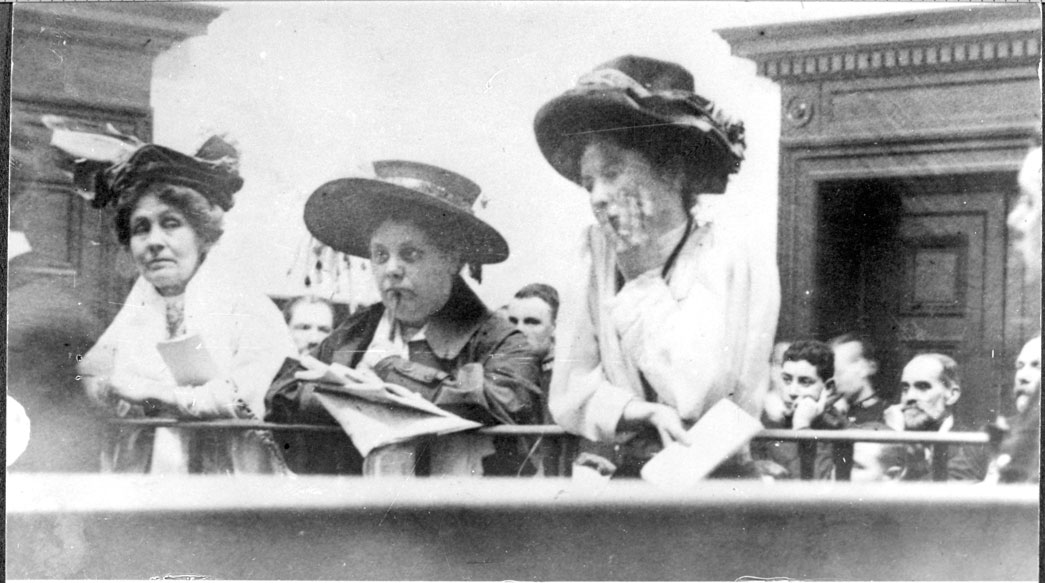
Emmeline and Christabel Pankhurst with Flora Drummond in the Dock at Bow Street court, October 1908.
The three suffragettes were charged with involvement in incitement to 'rush the House of Commons'.
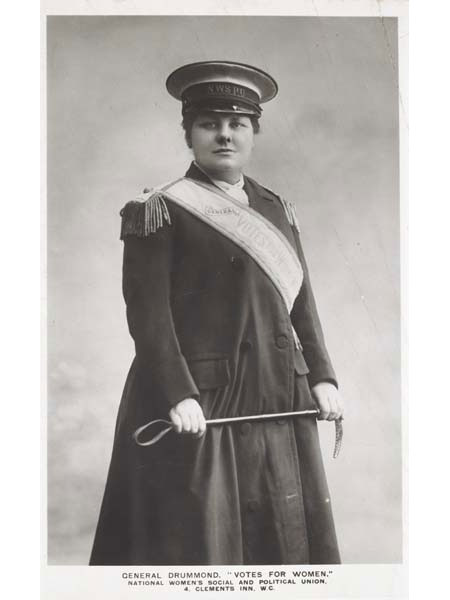
Shown here in the military-style uniform supplied by the firm Toye & Co.
Flora Drummond's Suffragette career began in 1905. That summer she was one of the speakers touring Lancashire towns as part of the Women's Social and Political Union campaign. In October, after the imprisonment of Annie Kenney and Christabel Pankhurst for an altercation at Manchester's Free Trade Hall (the first militant act), she helped to capitalise on the ensuing publicity by organising meetings and printing leaflets. Like the Pankhursts she left the Independent Labour Party, believing it only paid lip-service to women's rights. She was known as "the General" both for her organising abilities and her habit of wearing a uniform and riding a horse to Suffragette meetings. We have the magnificent peaked cap Drummond wore on display in Shades of Militancy.
In 1906 she moved to London to work as a salaried Organiser but also kept close links with the WSPU campaign in Scotland. She was imprisoned nine times in total, once whilst pregnant with her son. When hunger-striking was introduced by suffragette prisoners as a political tactic, Drummond herself took part. However, she was never forcibly fed because, like Emmeline Pankhurst, she was deemed to be too prominent a personality for the authorities to risk injuring.
In 1909 she moved to Glasgow and organised both the WSPU's general election campaign and Women's Exhibition of 1910. When Drummond returned to London late in 1911 she was put in charge of co-ordinating all WSPU branches throughout the country. In January 1913 she led a deputation of working women, alongside Annie Kenney to Lloyd George, who was reported to have congratulated Drummond on her handling of the event.
Kitty Marion, the arsonist actress
Born Katherina Maria Schafer in Germany Kitty came to England in 1886 at the age of 15 shortly after which she started working for the Variety theatre, touring the country as a vocal comedienne. She became a member of the Women’s Social and Political Union in 1908, taking part in deputations to the House of Commons and selling the Votes for Women newspaper. From then she combined her music hall career with that of a Suffragette militant. She was also a member of the Actresses’ Franchise League. She participated in a number of extreme militant acts, window smashing and arson. Like any proud performer, Kitty kept press descriptions of her work: she pasted newspaper clippings reporting militant acts such as arson in a scrapbook, a page of which we have on display in Shades of Militancy.
By 1913 Marion was suspected of committing five acts of arson, yet was arrested only for the fifth - the burning of the Grand Stand at Hurst Park Racecourse. Kitty was found guilty and sentenced, on 3 July 1913, to three years and 21 days of hard labour in Holloway Prison.
Weakened through hunger-strike, she was twice released under the Prisoner's Temporary Discharge for Ill Health Act (referred to by the suffragettes as the 'Cat and Mouse Act') into a Women's Social and Political Union nursing home. Leaving the home, she would evade the authorities and commit further acts of arson or window-breaking before being captured and re-imprisoned. During Marion's last spell in Holloway, she was forcibly fed 232 times over a period of 14 weeks and two days. On 16 April 1914 she was released again under the Act, having lost 2 stone 8lbs (16kg) in weight.
Faced with deportation to Germany at the start of World War I, Marion eventually negotiated her migration to the USA, where she lived for the remainder of her life, becoming highly involved in the birth control movement.
Charlotte Marsh, the Organiser
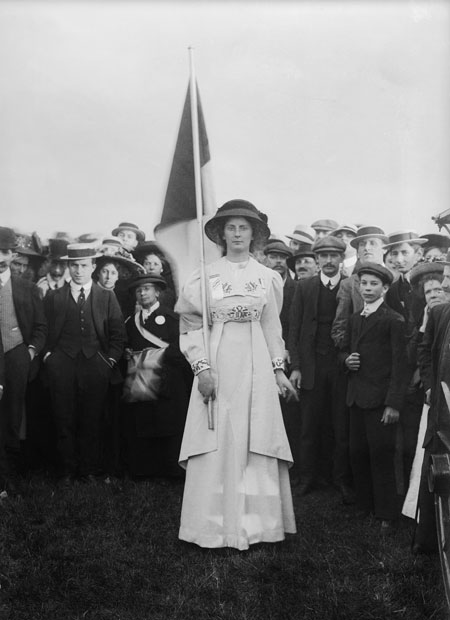
Suffragette Charlotte Marsh, 1910
Photograph by Christina Broom, Hyde Park. Marsh was Grand Marshal for this Women's Sunday procession, carrying the great silk standard in the Suffragette colours of green, white and purple.
Charlotte Marsh joined the Women's Social and Political Union in 1907, at the age of 20. She did not, however, become active in the movement until 1908 when she finished her training as a sanitary inspector. During her first WSPU deputation to Parliament Square in June 1908 Charlotte was arrested for obstruction, and imprisoned in Holloway for one month. The following year she became WSPU Organiser in Yorkshire. Whilst in prison in 1909 for heckling Asquith, Charlotte became one of the first hunger-striking suffragettes to be forcibly fed.
In 1910 Charlotte became the WSPU Organiser in Oxford and subsequently Portsmouth and Nottingham. As well as working as a full time paid regional Organiser, Charlotte also continued to undertake militant acts. For smashing nine windows in the Strand in March 1912 she was sentenced to 6 months imprisonment. Organisers like Charlie were vital to keeping the Suffrage movement in the public eye and putting pressure on politicians.
During World War I, when the WPSU announced a "truce" with the British government, Charlotte worked as a motor mechanic, chaffeuse to Lloyd George and as a land girl. She continued her commitment to the suffrage cause as honorary secretary of the Independent WSPU.
Muriel Matters, the "Grille" Prisoner
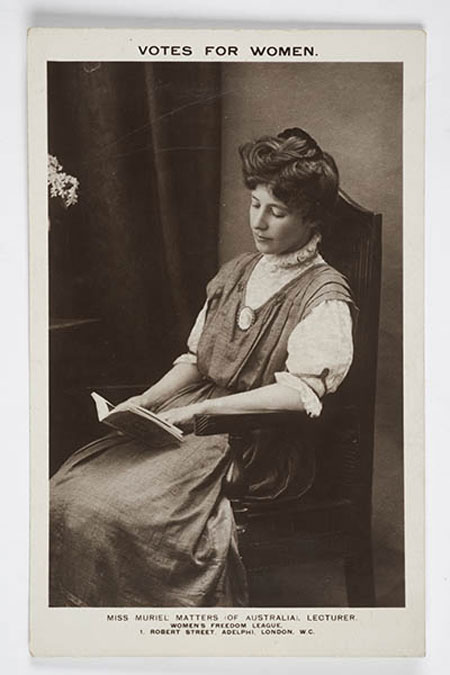
Suffragette Muriel Matters, 1908
Muriel Matters (1877-1969) was an Australian actress who, on coming to London in 1905, began attending Women’s Social and Political Union meetings. In 1907 Muriel left the WSPU and joined the newly founded Women's Freedom League. On 28th October 1908 Muriel along with her fellow WFL members Violet Tillard and Helen Fox entered the Ladies’ Gallery at the House of Commons. As Matters and Fox chained themselves to the grille of the gallery proclaiming ‘Votes for Women’, Violet Tillard lowered a banner to the MPs below.
Unable to undo the chains attaching Matters and Fox to the grille the police were forced to remove the Suffragettes to a nearby room with the grille still attached where a blacksmith was called to detach the women. It's now on display, for the first time, in our Show Space. On their release without charge the women joined other members of the Women’s Freedom League protesting outside the Commons. Muriel Matters subsequently became one of 14 members of the Women’s Freedom League arrested on a charge of obstruction. Matters, found guilty was sentenced to one month’s imprisonment in Holloway.
In 1909 Matters hired an airship painted with the slogan 'Votes For Women', and sailed over the House of Commons distributing WFL leaflets. Matters later campaigned on behalf of the Tax Resistance League and spoke for the National Union of Women’s Suffrage Societies. When World War I began, and Matters ceased her suffragette campaigning, she felt free to marry the man who she had been refusing for the past three years.
Ada Flatman, Suffragette scrapbooker
Ada (Susan) Flatman was a salaried WSPU Organiser from 1908 and served one term of imprisonment for militancy in October 1908 for taking part in the 'raid' on the House of Commons. From 1909 she was appointed Organiser in Liverpool and opened the first Votes for Women shop in the city that proved to be highly profitable. This vital fundraising allowed the Suffragettes to campaign nationally, to take care of members who suffered poverty due to their militancy, and to spread their message to the masses.
By February 1911 Ada had been appointed WSPU Organiser in Cheltenham where she adapted her organisational skills to the requirements of the local membership by organising a programme of drawing-room meetings with guest speakers from Head Office. In 1912 Ada worked as Organiser for the WSPU by-election campaigns in Hereford & Crewe. Her work is chronicled in the many tickets, leaflets and flyers that Ada kept in three scrapbooks, now in the museum collection.
However in July 1912 Ada resigned from her role as salaried WSPU Organiser for unknown reasons.

